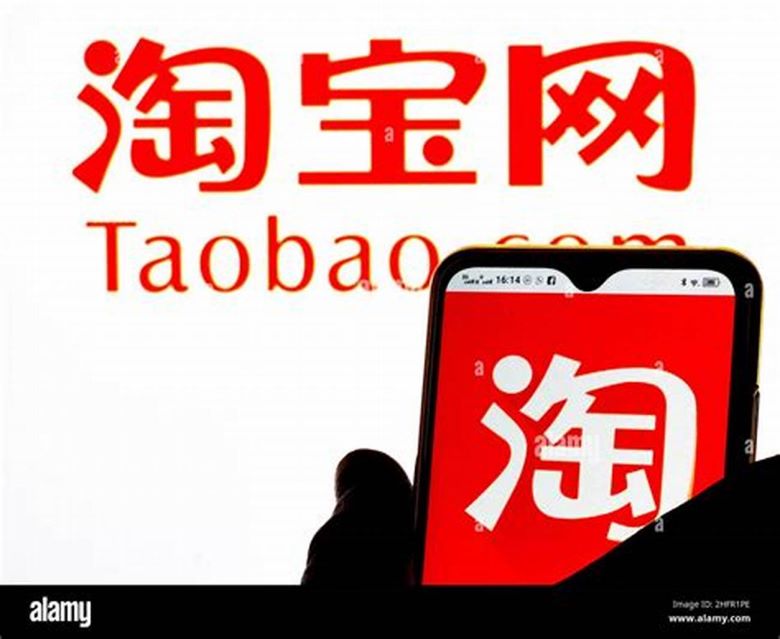Nandini Roy Choudhury, writer
Brief news
- The Taobao app, owned by Alibaba, launched an English version, quickly rising to the top of the Apple App Store in Singapore, aided by AI-powered translations.
- The update aims to enhance accessibility for non-Chinese users, allowing easier shopping experiences without manual translations.
- Despite some translation issues, the new features have generated significant interest on social media, with users actively sharing guides and tips.
Detailed news
Following the release of an English version on Tuesday, the Taobao shopping app, which is owned by the Chinese e-commerce behemoth Alibaba, dominated the Apple App Store rankings in Singapore. This was achieved through the use of artificial intelligence-powered translations.
Sensor Tower, a market intelligence firm, reports that Taobao gained the top spot in the Singapore App Store of Apple across all categories as of September 11. The program advanced from fifth to first place in the purchasing category on Tuesday, the day the English-language version was announced.
Sensor Tower reported that the Taobao app had maintained its relative popularity and was consistently rated among the top ten purchasing applications for iPhone users from mid-August onward.
Alibaba stated in a press release on Tuesday that the new update “demonstrates Taobao’s commitment to its Singapore users, who have expressed a strong desire for an English-language interface, which reflects their diverse language fluency.” The AI translation features were not further elaborated upon. The organization maintains its own artificial intelligence model.
According to the release, the new platform “improves accessibility for non-Chinese users by eliminating the necessity for manual translations that previously made shopping less convenient for them.”
Alibaba’s primary revenue streams are Taobao and Tmall; however, they have predominantly served consumers in China through a Chinese-language interface. The revenue of Taobao and Tmall Group for the quarter ending June 30 was 26.55 billion yuan ($3.65 billion), representing a 6% increase from the previous year.
In recent years, Alibaba has also endeavored to expand its international e-commerce operations through platforms like Alibaba.com and AliExpress.
According to Alibaba, Singapore is the initial market in which Taobao will implement this new update, in addition to Malaysia, the city-state’s neighbor.
Taobao users in Singapore had previously created guides on how to purchase furniture, clothing, and lifestyle items from Taobao as early as last year. These video guides were published on the TikTok platform, which is owned by ByteDance and is another Chinese application. Numerous videos exceeded 10,000 views, with one reaching 105,000.
Alibaba’s most recent action is indicative of the increasing trend of Chinese businesses that are attempting to expand globally and are utilizing Singapore as a cultural testbed to further their aspirations to penetrate the Western market.
Consulting firm Bain and Company recently reported in their analysis of Asia Pacific-headquartered consumer goods companies that Chinese companies possess a substantial advantage over South Korean and Japanese companies in the globalization race due to the substantial ethnic Chinese diaspora that has established itself outside of mainland China.
David Zehner, senior partner at Bain, previously stated to CNBC, “There are numerous Chinese companies that possess highly ambitious global mindsets and are capable of leveraging the entrepreneurial, fast-innovation capabilities they have developed domestically to establish new positions abroad.”
Approximately 75% of Singapore’s population, which stands at 5.92 million, is of Chinese descent, according to a government report from the end of June 2023. Approximately 20% of Malaysia’s population is of Chinese descent.
An English-language experience that is not entirely flawless
Taobao consumers in Singapore and Malaysia have the option to purchase a variety of products, including electronics, shoes, and kitchen appliances, and have them delivered to their doorstep for a nominal shipping charge. The prices are expressed in renminbi.
The updated version of Taobao will offer product descriptions in English and the ability to convert prices from yuan to the Singapore dollar.
However, the user experience was far from flawless as of Thursday.
Despite the modification of currency display options, CNBC discovered that prices were not converted from yuan to Singapore dollars. Additionally, the translations were exceedingly literal. Nevertheless, the English translation option was also accessible for product evaluations.
Despite their imperfections, Singaporean social media users were eager to emphasize the new features.
One day following the announcement, an individual user posted a TikTok video that demonstrated how to modify the Taobao app’s display to English. In a single day, the video received 947,000 views.
In the third quarter of 2024, Sensor Tower informed CNBC that Taobao’s average monthly active consumers in Singapore achieved 167,000 in Singapore.
Source : CNBC News




